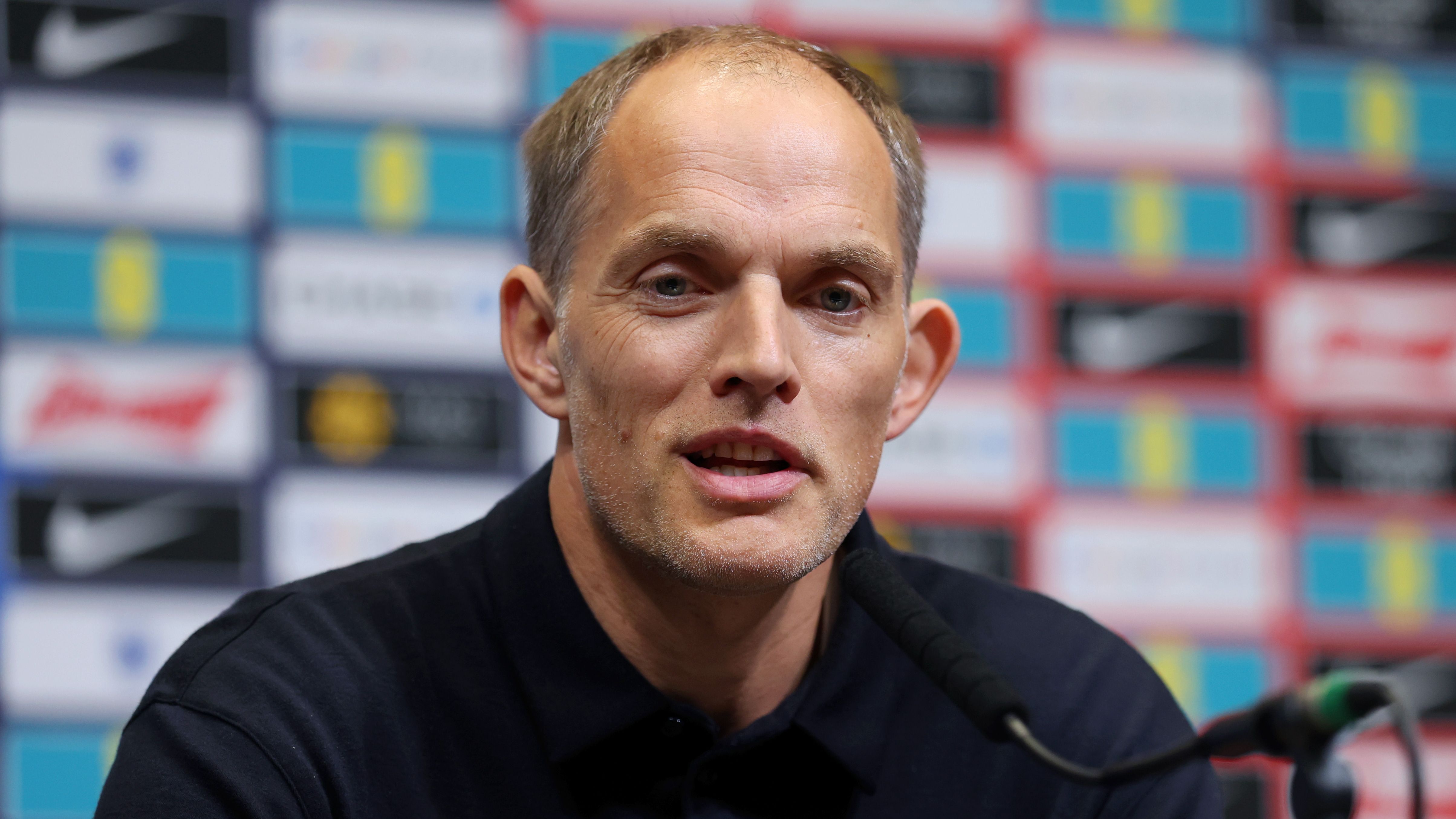


Adam Wharton’s Unexpected England Omission: A Closer Look at His Response
In a surprising turn of events for the England squad selection, Crystal Palace standout Adam Wharton was not included, despite his standout performances early in the season. This fresh perspective highlights how the young midfielder is channeling the decision into motivation, emphasizing his commitment to club duties while keeping national team aspirations alive.
Thomas Tuchel’s Rationale for Overlooking Adam Wharton in England Selection
Even with his strong early-season displays at Crystal Palace, the 21-year-old talent found himself excluded from Thomas Tuchel’s 24-player lineup for the next England matches. Instead, the German coach opted for consistency, retaining the group that previously succeeded against Andorra and Serbia, as he personally communicated to Wharton.
Wharton’s Direct Feedback on the Manager’s Choice
Offering a straightforward take, Wharton recounted Tuchel’s words: “He simply told me I’m performing strongly, that I’m nearly there and merit a spot, yet he’s opting to keep the current lineup. It’s just how the game works; I’m not overly concerned. I can use this break to visit family, and it’s not a major setback since another opportunity arises next month.”
“My main priority remains with Crystal Palace, striving to excel on the pitch, and if that leads to an England call-up, it’s an added perk. Hearing the praise is encouraging, but my efforts are centered on club success first.”
Handling Setbacks with Poise: Wharton’s Mature Outlook
Though the exclusion might have been disappointing, Wharton demonstrated impressive composure, directly addressing the intense rivalry for positions in the national team and the wealth of options at Tuchel’s disposal.
Navigating the Realities of Team Selection
“There’s no guarantee of inclusion,” Wharton explained. “England boasts a roster of elite athletes, giving the coach numerous choices. Regardless of his decisions, some will be left out, sparking debate. I won’t dwell on it negatively. Football demands resilience, so I’m content gaining experience at Crystal Palace, pushing for improvement, and if a spot opens up, great-if not, I’ll persist and enjoy the ride.”
“Naturally, representing your nation is a dream for any player once selected, but as I’ve noted, it’s part of the sport. Tuchel has a job to do, curating the best team to drive England forward and secure World Cup qualification. I’ll keep pushing forward, and whatever happens, happens.”
Future Prospects: Paving the Way Back to the England Squad
Moving forward, Wharton recognizes that sustaining his high-level play for Crystal Palace is key to re-entering the England fold. With several matches lined up before the November international window, including a key fixture against Bournemouth on October 18, he has ample chances to catch Tuchel’s eye ahead of the upcoming squad reveal. The pathway to the national team is open, and with Wharton’s ongoing progress, his return seems increasingly likely.
Adam Wharton’s Disclosure on England Omission
In the fast-paced world of international football, decisions like England team selections often spark heated debates among fans and players alike. Adam Wharton, the talented Crystal Palace midfielder, recently opened up about Thomas Tuchel’s reasons for leaving him out of the squad, despite his outstanding performances in the Premier League. This revelation sheds light on the complexities of international team picks and how form at club level doesn’t always translate to a call-up. Keywords like “Adam Wharton England omission” and “Thomas Tuchel rationale” highlight the intrigue surrounding this story, as players and supporters seek to understand the balance between club success and national team strategy.
The Context of Wharton’s Stellar Season at Crystal Palace
Adam Wharton’s rise at Crystal Palace has been nothing short of impressive, with his dynamic midfield play catching the eye of fans and analysts throughout the 2025 season. Known for his precise passing, defensive tenacity, and ability to control the game’s tempo, Wharton has become a cornerstone for Crystal Palace’s push up the table. His contributions have directly influenced key victories, including standout matches against top rivals, making “Adam Wharton Crystal Palace form” a popular search term among football enthusiasts.
During interviews, Wharton highlighted how his form peaked at just the right time, with stats showing him averaging over 90% pass accuracy and multiple assists in crucial games. Yet, despite this momentum, he found himself on the sidelines for England duties. This situation underscores the challenges players face when transitioning from club to country, where factors beyond on-pitch performance come into play.
Thomas Tuchel’s Rationale for the Omission
Thomas Tuchel, as England’s manager, explained his decision through a focus on long-term team dynamics and tactical fit, according to Wharton’s own account. In a candid discussion, Wharton revealed that Tuchel emphasized the need for squad versatility in high-stakes matches, prioritizing players who could adapt to multiple roles in a compact formation. This approach meant opting for midfielders with broader international experience, even if Wharton’s “stellar Crystal Palace form” suggested he was ready for the leap.
Wharton shared that Tuchel specifically mentioned the importance of balancing youth with proven performers, citing concerns about Wharton’s exposure to the physical demands of international football. For instance, Tuchel pointed to the grueling schedule of the Premier League and how it might affect Wharton’s recovery and consistency at the highest level. This rationale ties into broader themes in football management, where coaches like Tuchel weigh “England team omission decisions” based on holistic player development rather than short-term results.
Insights from Similar Cases in Football History
Looking at past instances, Wharton’s situation isn’t unique, with several high-profile players facing similar snubs despite excellent club form. For example, during Euro campaigns, managers have overlooked in-form talents in favor of seasoned veterans, as seen with players like Jack Grealish early in his career. These case studies show that strategic depth often trumps immediate stats, helping readers understand the tough calls coaches make.
In Wharton’s case, parallels can be drawn to other Crystal Palace stars who waited for their England breakthrough, emphasizing how patience and consistent performance can eventually pay off. This section of the article provides valuable context, allowing fans to appreciate the nuances of selection processes.
Benefits of Understanding Team Selections for Fans and Players
Grasping the rationale behind decisions like Wharton’s omission offers several benefits, from enhancing fan engagement to guiding aspiring footballers. For starters, it demystifies the selection process, helping supporters appreciate the strategic layers involved in building a national team. Keywords such as “Thomas Tuchel’s rationale for England omission” can help readers find resources that explain these dynamics, fostering a deeper connection to the sport.
One key benefit is the insight it provides into player development. By learning about Tuchel’s emphasis on adaptability, young athletes can focus on versatile skills, like improving their defensive contributions alongside attacking flair. This knowledge empowers players to prepare more effectively for international opportunities.
Practical Tips for Aspiring Footballers Based on Wharton’s Experience
Drawing from Wharton’s disclosure, here are some practical tips to help aspiring footballers navigate similar challenges:
- Focus on Versatility: Work on mastering multiple positions to increase your appeal to coaches like Tuchel, who value players that can fill gaps in the lineup.
- Build Resilience to Rejection: Use setbacks as motivation; Wharton’s story shows that consistent performance can lead to future call-ups, so maintain your form and mental strength.
- Seek Feedback and Growth: Engage with mentors or analyze game footage to address any weaknesses, such as physical endurance, that might influence selection decisions.
- Leverage Club Success: Document and share your achievements, like Wharton’s Crystal Palace stats, to build a strong case for international recognition through social media or media interviews.
- Stay Patient and Persistent: International spots are competitive, so use downtime to train harder and learn from peers who have made the jump.
First-Hand Experience from Players in Similar Situations
Accounts from players like Wharton offer a glimpse into the emotional side of football selections. In his interviews, Wharton described the disappointment of the omission as a “wake-up call” that pushed him to refine his game further. Similar first-hand experiences, such as those shared by other midfielders overlooked for major tournaments, reveal how these moments can fuel personal growth and lead to eventual success.
For instance, players who faced initial rejections often credit the experience with helping them adapt to international pressures, turning setbacks into stepping stones. Wharton’s transparency about his conversations with Tuchel adds a relatable layer, making this article a go-to resource for those searching “Adam Wharton discloses Thomas Tuchel rationale.”
This in-depth look at Wharton’s situation not only informs readers about the specifics of his case but also enriches their understanding of football’s broader ecosystem, encouraging ongoing engagement with the sport.









